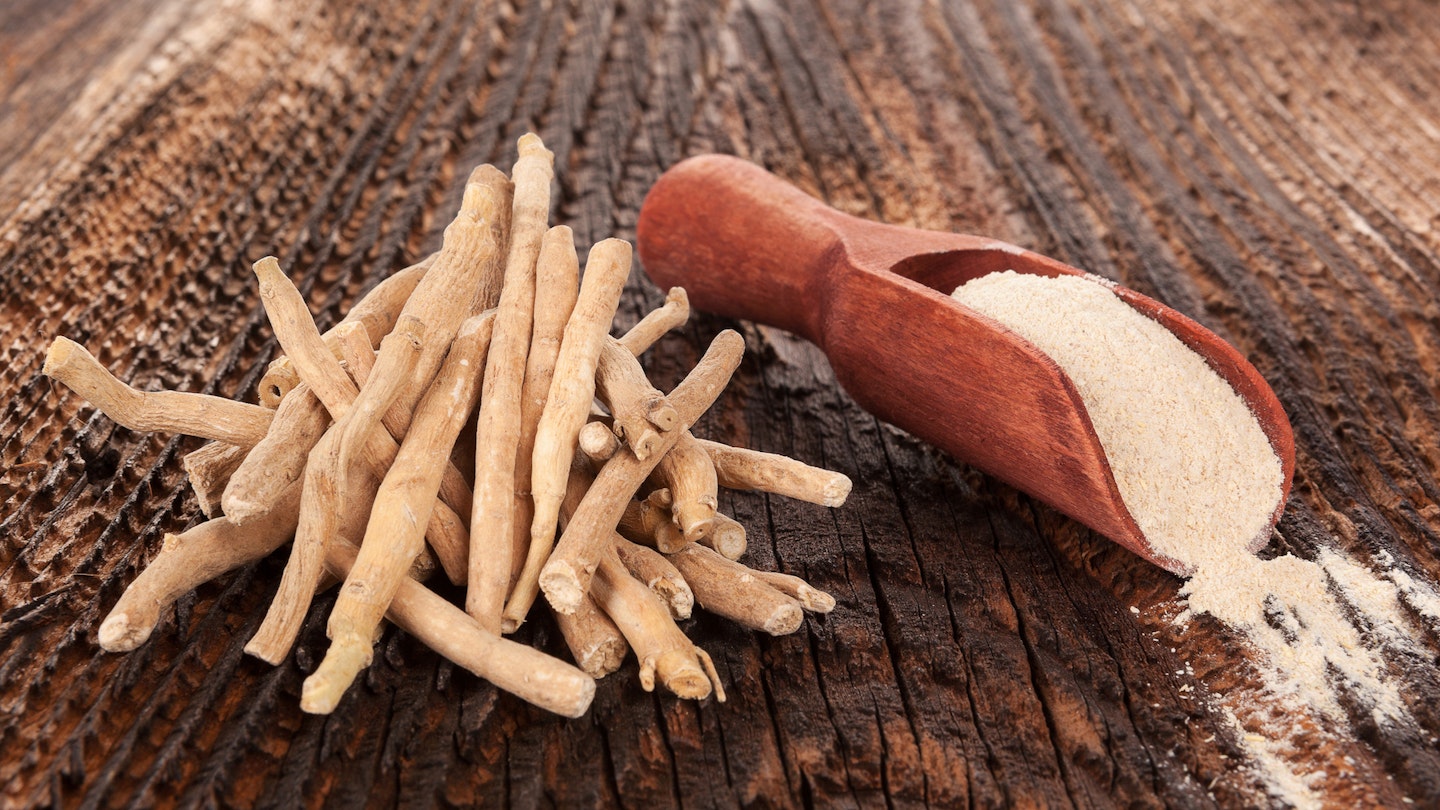In the quest for better sleep, I, Simon, your humble sleep-deprived protagonist, set forth on a 30-day adventure with ashwagandha - a supposed excellent supplement with a name that sounds more exotic than my dreams ever were.
This versatile herb, often lauded for its varied health benefits, promised to be my valiant knight in shining armour as I battled the forces of sleepless nights and stressed-out days. As we delve into my experience with this herbal supplement, we'll navigate the enigmatic world of ashwagandha, exploring its various forms, potential perks, and maybe even a surprise or two. But more importantly, dear reader, prepare yourself for tales of how this ancient remedy transformed my nights, so you too can embark on your quest to slay the stress dragon and bask in the glory of sweet slumber.
Ashwagandha uncovered

Ashwagandha, also known as Withania Somnifera or winter cherry, is an adaptogenic herb. This means it has an active ingredient - an adaptogen - which is recognised for its ability to help the body manage stress.
Rooted in traditional Indian medicine, called Ayurvedic, ashwagandha is referred to as "Indian ginseng" in certain parts of the World and for the last five years had gained widespread popularity for its potential to support stress management, promote better sleep and enhance overall vitality.
Like other natural supplements such a spirulina, ashwagandha is available in various forms, including root powder, capsules, tablets and even as a liquid extract. The versatility in these forms allows individuals to choose the most convenient method of consumption that aligns with their preferences and lifestyle.
Understanding ashwagandha's potential benefits
While ashwagandha offers a range of potential benefits, such as immune system support and mood enhancement, my focus during this 30-day experiment was on its ability to improve sleep quality and alleviate stress.
Below are the benefits I encountered over the course of the 30 days.
Ashwagandha is often linked to better sleep initiation, helping people fall asleep more easily - also known as sleep onset - and reducing the time spent tossing and turning in bed.
Prior to taking ashwagandha I would find myself waking up an hour after going to sleep three to five times per night, which would interrupt the potential to achieve REM cycle, which typically triggers within 90 minutes of falling asleep. Rapid Eye Movement (REM) sleep is essential for cognitive function and memory consolidation. Ashwagandha may support a deeper and more restorative REM cycle.
I felt more energised in the morning after taking ashwagandha, which significantly impacted my daily productivity and well-being. I found myself completing written work faster, being able to think clearer when assigned a task and even more focussed.
Could it be a placebo? I would be surprised if so, I’ve tried sleeping tablets before and have usually felt groggy and full of brain fog the next day.
Best practices for consumption:
The recommended dose of ashwagandha can vary based on the specific product and individual needs. In my case, I opted for a 1,200 mg tablet form, which I took about an hour before bedtime every night. This dosage and timing worked well for me, allowing the ashwagandha to support my sleep without causing drowsiness during the day. I brought mine - which is New Leaf Products' Ashwagandha 1200mg - from Amazon.
It's essential to follow the instructions on the product label or consult with your GP/Doctor to determine the most suitable dose and timing for your needs.
Potential side effects:
Ashwagandha is generally well-tolerated, but like any supplement, it may have side effects for some individuals. Side effects can include gastrointestinal discomfort, dizziness, or a mild headache. However, such side effects are typically rare and mild.
My personal experience with ashwagandha
Over the course of 30 days, I experienced notable changes in my sleep patterns and overall well-being. I found that ashwagandha significantly improved my sleep onset, helping me fall asleep faster. I also noticed a positive shift in my ability to achieve REM sleep, leading to more vivid dreams and a sense of mental clarity upon waking.
One of the most profound changes was waking up in the mornings with increased energy and feeling more refreshed. This newfound energy translated into better productivity throughout the day. Moreover, my nighttime awakenings reduced significantly, contributing to an overall sense of relaxation and calm.
While I can't solely attribute these changes to ashwagandha, as I also practise sleep hygiene and pre-bed yoga, I firmly believe that the improved sleep quality played a pivotal role in enhancing my stress management and overall well-being. Better sleep, after all, has a cascading effect on various facets of one's life.
A deeper look into my sleeping troubles and how I found ashwagandha

Sleeping troubles and the effect on my workouts
The toll of sleepless nights extended to my productivity and fitness regimen. My work output suffered as concentration decreased, making even the simplest tasks seem like monumental challenges. More importantly, my enthusiasm for workouts diminished and I found myself skipping morning sessions over getting some more sleep. It was evident that something needed to change, but I was uncertain about how to break free from this vicious cycle.
The turning point: A desperate need for change
As weeks turned into months, it became increasingly evident that this was not a situation that would resolve itself. I needed to make a change. It was at this point that I decided to tackle my sleep issues head-on. After conducting thorough research, I came across studies on Google Scholar emphasising the critical role of sleep in managing stress and enhancing overall well-being.
Discovering the power of sleep
I delved into sleep hygiene practices, aiming to create an environment conducive to rest. I established a consistent bedtime routine, reducing exposure to screens before sleep and ensured my bedroom was dark and cool. Despite my best efforts, sleep quality was still eluding me.
The game-changer
After listening to an episode of the Joe Rogan Experience, I introduced a natural sleep aid into my routine. It was here that my journey took a significant turn. I incorporated practices such as meditation and deep-breathing exercises into my nightly routine but after a while I swapped for 10 to 15 minutes of yoga. Additionally, I embraced the power of a dietary supplement – ashwagandha – known for its potential to support sleep quality and stress management.
Improved sleep and more
Incorporating ashwagandha was a game-changer. Slowly but surely, the quality of my sleep began to improve. The frequency of nighttime awakenings reduced within the first three days and I started to feel more rested upon waking. As my sleep quality improved, I found myself feeling less stressed throughout the day. The effects rippled across my life.
The newfound energy, coupled with my reduced stress levels, reignited my passion for workouts. I found myself adhering to a consistent exercise routine, eagerly pushing my limits and experiencing substantial improvements in my fitness and overall well-being.
Final thoughts:
My journey from stress and sleepless nights to enhanced productivity and workout adherence is a testament to the transformative power of improved sleep. When we prioritise sleep and incorporate healthy sleep hygiene practices, it can have a profound impact on all aspects of our lives.
While my journey included a natural sleep aid, it's important to remember that individual experiences may vary, and consulting with your GP is always a wise decision.
Simon Diamond is a contributor to What’s The Best with over a decade of expertise in fitness, nutrition and wellbeing. A former bodybuilder and fitness model winner, Simon holds multiple World Records for muscular endurance and strength titles.
Subscribe to the What’s The Best Newsletter to keep up to date with more of the latest reviews and recommendations from the rest of the What’s The Best team.
